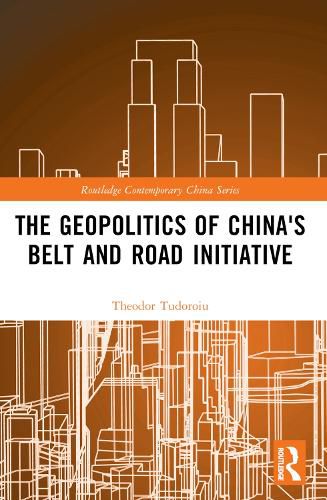Readings Newsletter
Become a Readings Member to make your shopping experience even easier.
Sign in or sign up for free!
You’re not far away from qualifying for FREE standard shipping within Australia
You’ve qualified for FREE standard shipping within Australia
The cart is loading…






This book argues that China's Belt and Road Initiative should be seen more as a geopolitical project and less as a global economic project, with China aiming to bring about a new Chinese-led international order. It contends that China's international approach has two personas - an aggressive one, focusing on a nineteenth century-style territorial empire, which is applied to Taiwan and the seas adjacent to China; and a new-style persona, based on relationship building with the political elites of countries in the Global South, relying on large scale infrastructure projects to help secure the elites in power, a process often leading to lower democratic participation and weaker governance structures. It also shows how this relationship building with elites leads to an acceptance of Chinese norms and to changes in states' geopolitical preferences and foreign policies to align them with China's geopolitical interests, with states thereby joining China's emerging international order. Overall, the book emphasizes that this new-style, non-territorial "empire" building based on relationships is a major new development in international relations, not fully recognized and accounted for by international relations experts and theorists.
$9.00 standard shipping within Australia
FREE standard shipping within Australia for orders over $100.00
Express & International shipping calculated at checkout
This book argues that China's Belt and Road Initiative should be seen more as a geopolitical project and less as a global economic project, with China aiming to bring about a new Chinese-led international order. It contends that China's international approach has two personas - an aggressive one, focusing on a nineteenth century-style territorial empire, which is applied to Taiwan and the seas adjacent to China; and a new-style persona, based on relationship building with the political elites of countries in the Global South, relying on large scale infrastructure projects to help secure the elites in power, a process often leading to lower democratic participation and weaker governance structures. It also shows how this relationship building with elites leads to an acceptance of Chinese norms and to changes in states' geopolitical preferences and foreign policies to align them with China's geopolitical interests, with states thereby joining China's emerging international order. Overall, the book emphasizes that this new-style, non-territorial "empire" building based on relationships is a major new development in international relations, not fully recognized and accounted for by international relations experts and theorists.